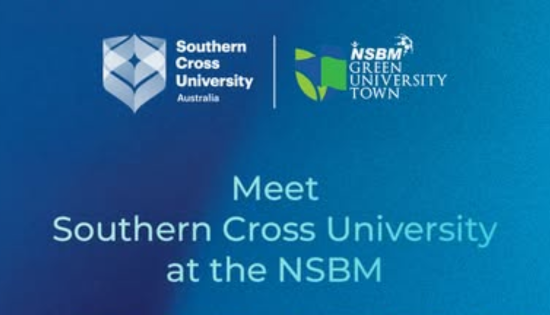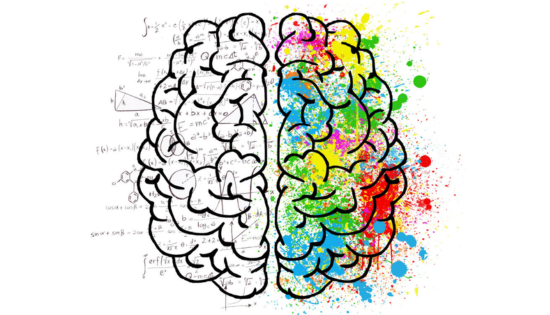Emotional Intelligence Meets GenAI: Reimagining the Future of Education
The rapid integration of Generative AI (GenAI) into classrooms has unlocked a world of possibilities. From AI-powered tutors to automated grading and personalized content generation, the education sector is riding a wave of digital transformation. But amid all the excitement, one essential human quality risks being left behind: Emotional Intelligence (EI).

At its core, emotional intelligence is the ability to understand, interpret, and respond to emotions our own and those of others. In a learning environment, this skill is not optional; it’s fundamental. Teachers rely on it to nurture student growth, and students use it to navigate collaboration, manage stress, and stay motivated.
But what happens when GenAI takes a more active role in the educational experience? Can machines exhibit empathy? Can they detect a student’s anxiety before an exam or encourage a struggling learner in a moment of self-doubt?
Right now, the answer is: not quite.

The Problem with Emotionless Intelligence
GenAI is exceptionally good at tasks like summarizing texts, answering questions, and generating essays. However, it typically lacks contextual awareness about how something should be said based on the learner’s emotional state or background. An AI tutor might offer a technically correct response, but fail to sense if the learner is confused, overwhelmed, or discouraged.
This is where integrating emotional intelligence into AI becomes not just a bonus but a necessity.
Bridging the Gap: Emotionally-Aware AI in the Classroom
Imagine an AI-powered writing assistant that not only checks grammar and structure but also evaluates emotional tone. It could prompt a student with feedback like:
“This essay sounds accurate, but lacks empathy. Would you like to try rephrasing it to sound more supportive or reflective?”
Or consider a virtual learning companion that tracks a student’s behavior and patterns. If a student shows signs of disengagement long response times, sudden drop in performance, negative sentiment in answers it could gently offer encouraging messages, suggest breaks, or even alert human educators for intervention.
These are not distant dreams. With advances in affective computing and sentiment analysis, emotionally intelligent GenAI tools are becoming possible.
Why This Matters?
Education is not just about facts and figures. It’s about people their stories, struggles, curiosity, and potential. If we deploy AI that can’t perceive or respond to these human elements, we risk creating a cold, disconnected system.
On the other hand, when we combine the computational brilliance of GenAI with the empathic depth of emotional intelligence, we create a more inclusive, responsive, and supportive learning environment. One where technology doesn’t replace the human touch, but enhances it.
The Path Ahead
The future of education will depend not just on how smart our systems are but how emotionally smart they are. To get there, developers, educators, and researchers must collaborate to build GenAI tools that:
- Detect and adapt to emotional cues
- Provide feedback that’s not just correct, but compassionate
- Promote reflective thinking, empathy, and resilience
- Encourage emotionally rich communication, especially in creative and collaborative tasks
“We must teach our AI not just to pass tests, but to understand the human journey of learning.”
Related News
Gateway College Celebrates Outstanding SACE International Results, Showcasing Academic Excellence and Holistic Achievement
The release of the SACE International results on 15 December 2025 marked a moment of celebration across the global SACE community and…
Read MoreSouthern Cross University Brings its Bachelor of Business to NSBM Green University
Students in Sri Lanka now have the opportunity to earn an internationally recognised business degree without leaving the country, as Southern Cross…
Read MoreCIPM to Host Research Writing Workshop for Young Scholars
Writing a thesis or dissertation is one of the most challenging and most important academic journeys a student will ever take. From…
Read MoreReal Impact of Growing Arts & Humanities in Sri Lankan Universities
Universities in Sri Lanka face real pressures such as budgets tightening and the tension of every programme to prove its value when…
Read MoreSri Lankan-born academic knighted in King’s New Year Honours
Professor Nishan Canagarajah, a Sri Lankan-born academic and the current President and Vice-Chancellor of the University of Leicester, has been knighted in…
Read MoreCourses
-

MBA in Project Management & Artificial Intelligence – Oxford College of Business
In an era defined by rapid technological change, organizations increasingly demand leaders who not only understand traditional project management, but can also… -

Scholarships for 2025 Postgraduate Diploma in Education for SLEAS and SLTES Officers
The Ministry of Education, Higher Education and Vocational Education has announced the granting of full scholarships for the one-year weekend Postgraduate Diploma… -

Shape Your Future with a BSc in Business Management (HRM) at Horizon Campus
Human Resource Management is more than a career. It’s about growing people, building organizational culture, and leading with purpose. Every impactful journey… -

ESOFT UNI Signs MoU with Box Gill Institute, Australia
ESOFt UNI recently hosted a formal Memorandum of Understanding (MoU) signing ceremony with Box Hill Institute, Australia, signaling a significant step in… -

Ace Your University Interview in Sri Lanka: A Guide with Examples
Getting into a Sri Lankan sate or non-state university is not just about the scores. For some universities' programmes, your personality, communication… -

MCW Global Young Leaders Fellowship 2026
MCW Global (Miracle Corners of the World) runs a Young Leaders Fellowship, a year-long leadership program for young people (18–26) around the… -

Enhance Your Arabic Skills with the Intermediate Language Course at BCIS
BCIS invites learners to join its Intermediate Arabic Language Course this November and further develop both linguistic skills and cultural understanding. Designed… -

Achieve Your American Dream : NCHS Spring Intake Webinar
NCHS is paving the way for Sri Lankan students to achieve their American Dream. As Sri Lanka’s leading pathway provider to the… -

National Diploma in Teaching course : Notice
A Gazette notice has been released recently, concerning the enrollment of aspiring teachers into National Colleges of Education for the three-year pre-service… -

IMC Education Features Largest Student Recruitment for QIU’s October 2025 Intake
Quest International University (QIU), Malaysia recently hosted a pre-departure briefing and high tea at the Shangri-La Hotel in Colombo for its incoming… -

Global University Employability Ranking according to Times Higher Education
Attending college or university offers more than just career preparation, though selecting the right school and program can significantly enhance your job… -

Diploma in Occupational Safety & Health (DOSH) – CIPM
The Chartered Institute of Personnel Management (CIPM) is proud to announce the launch of its Diploma in Occupational Safety & Health (DOSH),… -

Small Grant Scheme for Australia Awards Alumni Sri Lanka
Australia Awards alumni are warmly invited to apply for a grant up to AUD 5,000 to support an innovative project that aim… -

PIM Launches Special Programme for Newly Promoted SriLankan Airlines Managers
The Postgraduate Institute of Management (PIM) has launched a dedicated Newly Promoted Manager Programme designed to strengthen the leadership and management capabilities… -

IMC – Bachelor of Psychology
IMC Education Overview IMC Campus in partnership with Lincoln University College (LUC) Malaysia offers Bachelor of Psychology Degree right here in Sri…
Newswire
-

Laugfs Gas price increased
ON: January 1, 2026 -

Kohuwela shooting : Police seek public support to arrest suspect
ON: January 1, 2026 -

Kadawatha–Meerigama section of Central Expressway : Construction Update
ON: January 1, 2026 -

Sri Lanka rolls out digital bus fare payment system on SLTB routes
ON: January 1, 2026










